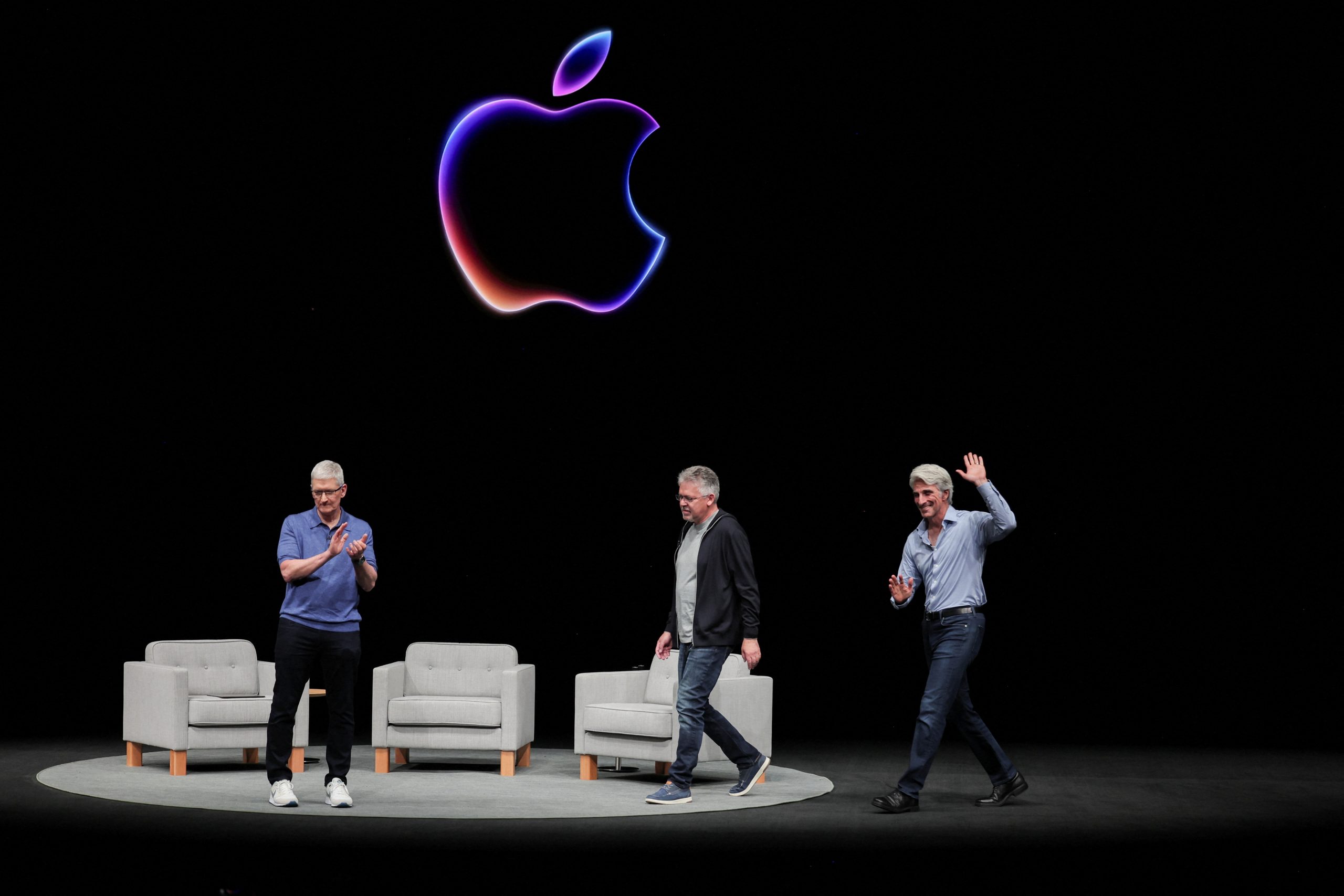Apple’s recent announcement at WWDC 2024 regarding the integration of OpenAI’s ChatGPT model into its devices sent shockwaves through the tech world. While some hailed this as a significant step towards AI-powered user experiences, concerns regarding security and privacy were quickly raised, most notably by Tesla and SpaceX CEO Elon Musk. This article delves into the details of the Apple-OpenAI partnership, explores Musk’s objections, and analyzes the potential implications for both companies and consumers.

Apple Embraces AI: A Partnership with OpenAI
During its annual Worldwide Developers Conference (WWDC), Apple unveiled a roadmap for integrating artificial intelligence (AI) across its device ecosystem. A key announcement was the collaboration with OpenAI, a research company specializing in developing friendly AI. This partnership will see OpenAI’s ChatGPT language model become a cornerstone of Apple’s “Apple Intelligence” suite, offering features like enhanced writing assistance and potentially even voice interactions with Siri. Notably, users will be able to access ChatGPT functionalities on iOS, iPadOS, and macOS devices without needing an OpenAI account.
Potential Benefits of the Apple-OpenAI Integration
The integration of ChatGPT into Apple devices holds the potential for several user benefits:
- Enhanced User Experience: ChatGPT’s natural language processing capabilities could significantly improve Siri interactions, making them more conversational and context-aware. Additionally, writing tasks could be streamlined with features like improved grammar checks and real-time content generation suggestions.
- Accessibility: By eliminating the need for separate accounts, Apple’s integration might make AI-powered features more accessible to a broader user base.
- Privacy Focus: Apple has emphasized its commitment to user privacy in this partnership. They claim that user data will not be shared with OpenAI, and interactions with ChatGPT will be processed on-device whenever possible.
Elon Musk Sounds the Alarm: Security Concerns Emerge
While Apple touts the benefits of its AI initiative, prominent figures like Elon Musk have expressed strong reservations. Musk, CEO of Tesla and SpaceX, has publicly criticized the partnership, primarily focusing on potential security vulnerabilities. His primary concerns are:
- Security Risks of Deep Integration: Musk argues that integrating OpenAI at the operating system level could create security vulnerabilities that could be exploited by malicious actors. He believes that Apple lacks complete control over OpenAI’s security protocols.
- Opacity and Privacy Concerns: Musk questions the transparency of how user data will be handled once it interacts with OpenAI’s systems. He worries that Apple might not fully understand the potential privacy risks associated with the data transfer.
Musk’s Proposed Response: Banning Apple Devices
Following his criticisms, Musk made a bold statement, claiming he would ban Apple devices from Tesla and SpaceX facilities if the company integrates OpenAI at the OS level. He envisions a scenario where employees and visitors would need to check their iPhones, iPads, and Macs at the door, potentially even storing them in Faraday cages to prevent unauthorized data transfer.
Navigating a Complex Landscape: Weighing Innovation and Security
The controversy surrounding Apple’s AI integration highlights the complex relationship between technological innovation and security concerns. It raises several crucial questions:
- Balancing Innovation and Risk: Can companies continue to develop cutting-edge AI technologies while ensuring robust security measures are in place?
- Transparency in AI Partnerships: How can companies like Apple and OpenAI work together to offer clear communication regarding data usage and privacy protections?
- The Role of User Choice: Should users have the option to opt in or opt out of AI integration within their devices?
Looking Forward: Potential Outcomes and User Implications
The outcome of this controversy remains to be seen. Here are some potential scenarios:
- Apple Addresses Security Concerns: Apple could address Musk’s concerns by providing detailed information about the security protocols employed in the partnership with OpenAI. Additionally, they may offer users more granular control over how their data interacts with ChatGPT.
- A Compromise is Reached: A potential compromise could involve integrating ChatGPT at a less deep level within the operating system, mitigating some of the security concerns raised by Musk.
- Apple Forges Ahead: Apple might choose to proceed with its current plans, potentially facing continued criticism from Musk and others but forging ahead with its AI vision.
FAQs:
Q: Why is Elon Musk critical of the Apple-OpenAI partnership?
A: Elon Musk primarily worries about potential security vulnerabilities that could arise from deeply integrating OpenAI’s technology at the operating system level. He also expresses concerns about the transparency of data handling practices within the partnership.
Q: Will Apple devices be banned from Tesla and SpaceX facilities?
A: As of now, this remains a hypothetical scenario. While Musk has stated his intention to ban Apple devices if the deep integration with OpenAI proceeds, Apple might address his concerns or implement a compromise solution.
Q: Should I be worried about the security of my Apple devices with the OpenAI integration?
A: The level of risk is debatable. Apple emphasizes its commitment to user privacy and on-device processing of data whenever possible. However, security concerns are always valid in the evolving landscape of AI. It’s advisable to stay informed about updates from both Apple and security experts regarding the partnership.
Q: How will the Apple-OpenAI integration impact my user experience?
A: The integration has the potential to significantly enhance user experience with features like improved Siri interactions, more efficient writing tools, and potentially even voice-controlled functionalities. However, the specific features and their rollout timeline are yet to be officially announced by Apple.




